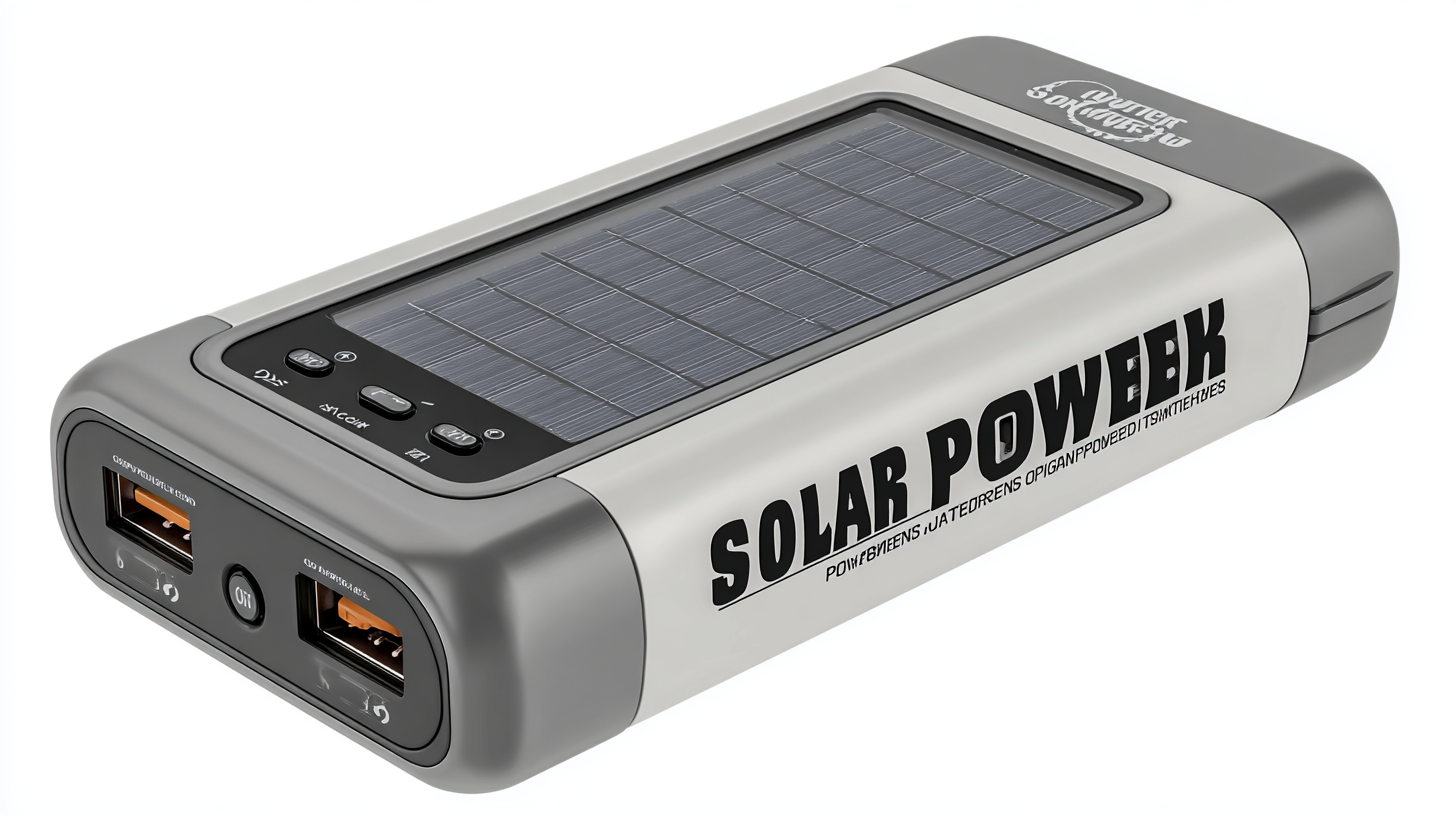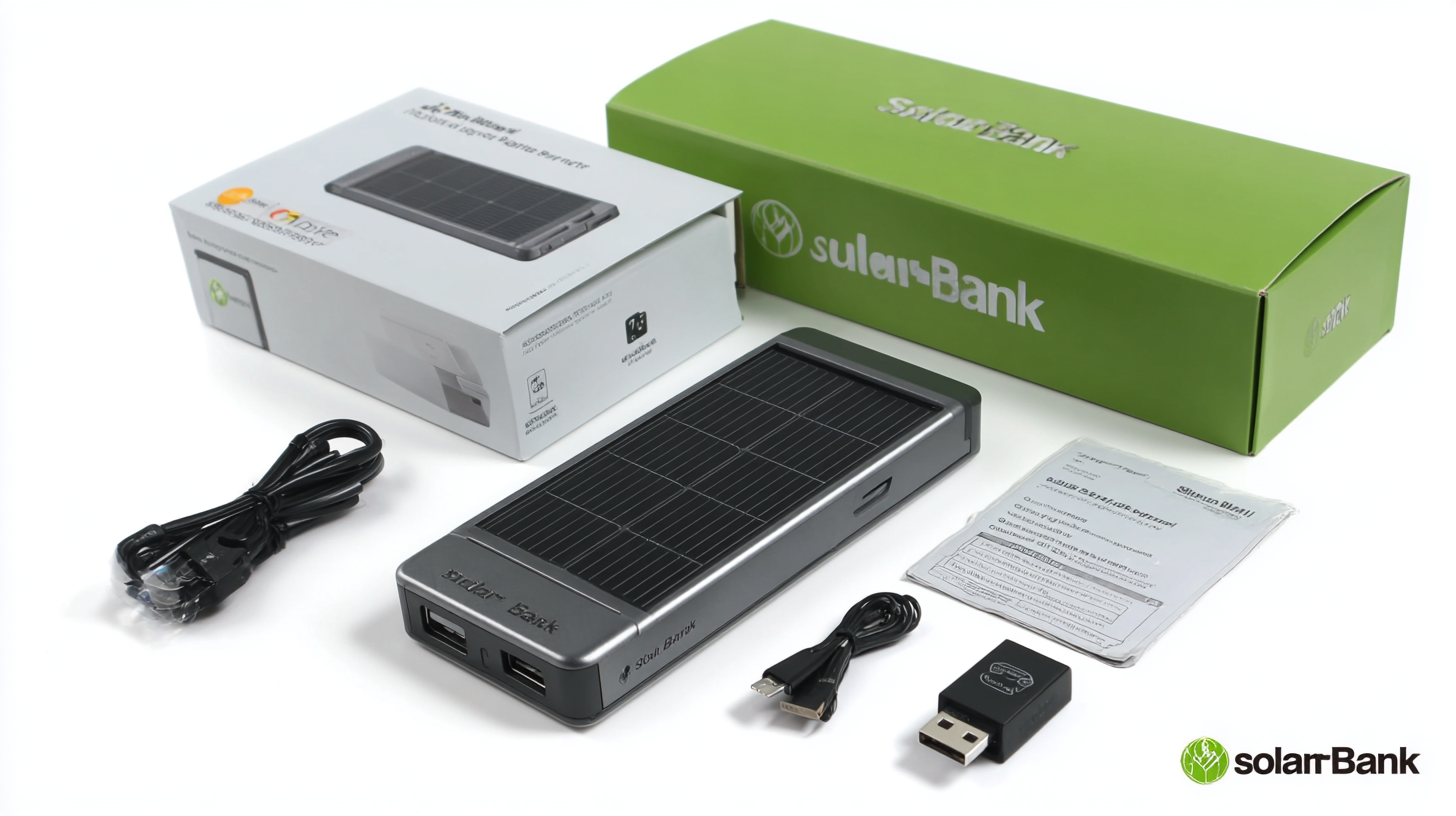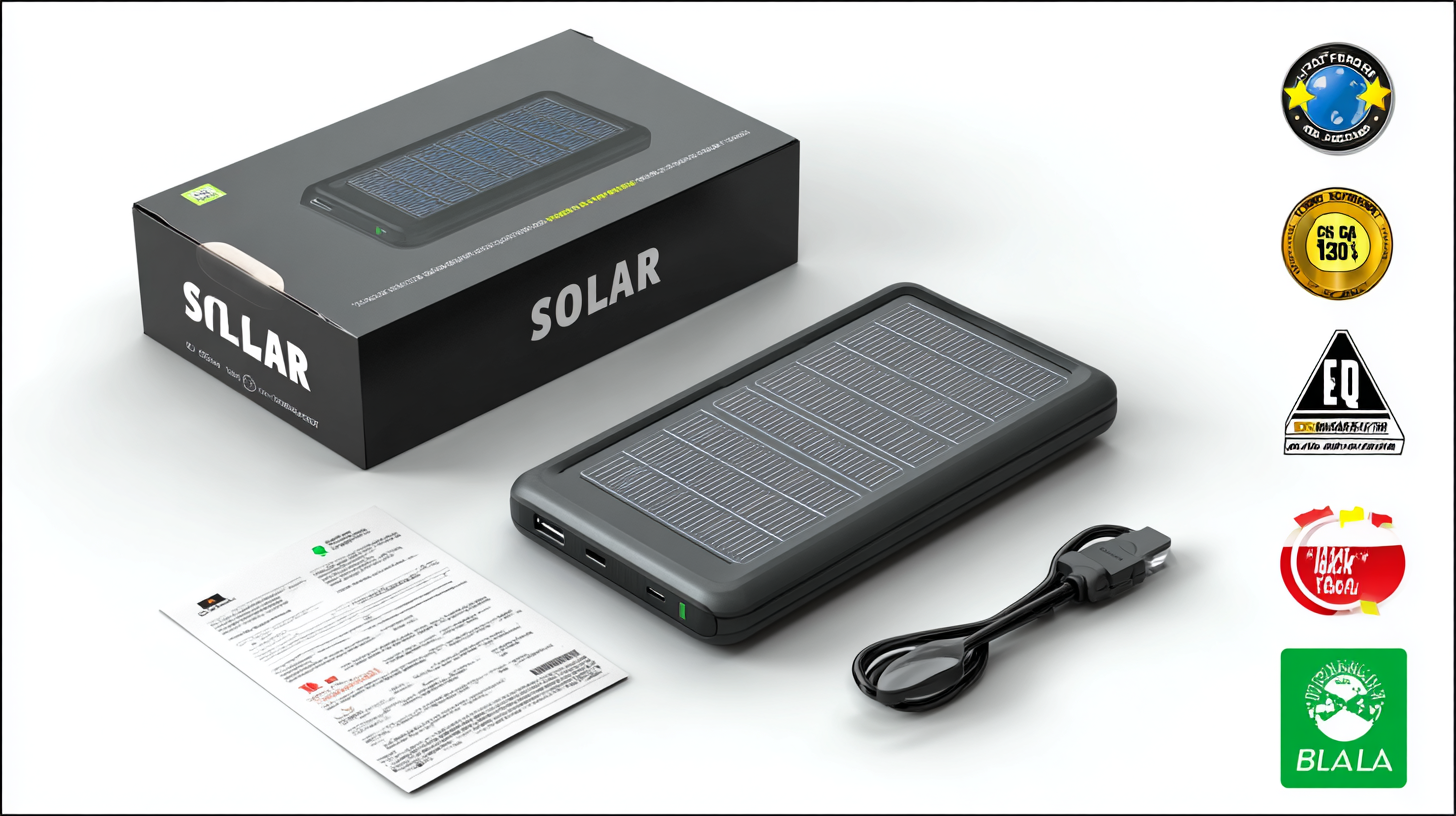
Understanding Import Export Certifications for Best Solar Powered Power Banks and How to Meet Compliance
As the demand for sustainable energy solutions continues to rise, the market for Solar Powered Power Banks is experiencing significant growth. According to a recent report by Grand View Research, the global solar power bank market is expected to reach USD 1.5 billion by 2025, growing at a compound annual growth rate (CAGR) of 20.4% from 2019 to 2025. This surge in demand underscores the importance of understanding import and export certifications required for these innovative products. Compliance with international regulations not only ensures market access but also enhances consumer trust in product quality and safety. As manufacturers and retailers navigate the complexities of global trade, grasping the necessary certifications becomes crucial for success in this booming sector. In this article, we will explore the essential certifications, the compliance process, and best practices for ensuring your Solar Powered Power Bank meets the required standards for international markets.

Importance of Import Export Certifications for Solar Power Banks
Import-export certifications play a crucial role in ensuring that solar-powered power banks meet international trade standards and safety regulations. As the global market for solar energy solutions grows, regulatory compliance has become a top priority for manufacturers. According to the International Renewable Energy Agency (IRENA), global solar power capacity reached 1,200 GW in 2020, with projections indicating a 20% annual growth. As the demand for solar-powered devices, including power banks, increases, manufacturers must prioritize obtaining the necessary certifications to facilitate smooth trade operations and enhance marketability.
Moreover, certifications like CE, UL, and ISO have become benchmarks for quality assurance in the solar technology sector. A report by ResearchAndMarkets indicates that the global solar power bank market is expected to grow at a CAGR of 10.5% from 2021 to 2026. This growth underscores the importance of adhering to compliance practices, as certified products are often more favorably received by consumers and regulatory bodies alike. By investing in the right import-export certifications, manufacturers not only ensure compliance but also build trust with consumers, enabling them to differentiate their products in a competitive landscape.
Understanding Import Export Certifications for Best Solar Powered Power Banks
| Certification Type | Description | Importance | Region Covered | Compliance Requirements |
|---|---|---|---|---|
| CE Marking | Indicates conformity with health, safety, and environmental protection standards for products sold within the European Economic Area. | Essential for marketing in Europe and assures consumers of product safety. | European Union | Testing by notified bodies; documentation showing compliance. |
| FCC Certification | Verifies that the electromagnetic interference from the device is under limits approved by the FCC. | Required for consumer electronics sold in the US; ensures minimal interference with communication devices. | United States | Testing by accredited labs; submission of technical documentation. |
| RoHS Compliance | Restricts the use of specific hazardous materials found in electrical and electronic products. | Crucial for environmental protection and compliance in Europe. | European Union | Material testing; declaration of conformity. |
| PSE Mark | A safety mark for electrical appliances in Japan, indicating compliance with the Electrical Appliance and Material Safety Law. | Mandatory for all electrical devices sold in Japan. | Japan | Product testing; compliance with safety requirements. |
| ISO Certification | International standards for quality management and assurance, applicable to various sectors. | Improves efficiency and customer satisfaction; enhances market credibility. | Global | Adherence to specific ISO standards; regular audits. |
Key Certifications Needed for Solar Powered Products in Global Trade
When venturing into the global market with solar-powered power banks, ensuring compliance with key certifications is essential. These certifications not only validate the product's quality and safety but also facilitate smoother international trade. Among the most important certifications are CE marking, which demonstrates compliance with EU safety standards, and UL certification, a key indicator of electrical safety in the United States. Additionally, RoHS compliance is critical for ensuring that the product does not contain hazardous substances, appealing to environmentally-conscious consumers and meeting market regulations.
Another vital certification is the ISO 9001, which focuses on quality management systems and customer satisfaction. This certification can significantly enhance a manufacturer’s credibility and can be a determining factor for retailers when choosing suppliers. Furthermore, depending on the target market, certifications like FCC for electronic devices in North America may be required. As regulations vary by region, staying informed about these requirements and obtaining the necessary certifications can greatly impact the marketability and acceptance of solar-powered power banks around the world.
Understanding Import Export Certifications for Solar Powered Products
Steps to Achieve Compliance for Solar Power Bank Exports
When exporting solar-powered power banks, compliance with import-export certifications is crucial for ensuring product safety and marketability. The first step in achieving compliance is to familiarize yourself with both local and international regulations governing electronic devices. This includes obtaining the necessary certifications such as CE marking in Europe or FCC certification in the United States. These certifications not only demonstrate that your product meets specific safety and environmental standards but also enhance consumer trust and acceptance.
Next, it is essential to conduct thorough testing of your solar power banks in certified laboratories. This process verifies that your product adheres to required standards for performance and safety. Keep detailed records of all testing and certification processes, as this documentation will be vital for customs clearance and may be requested by importers. Additionally, consider collaborating with a compliance consultant who can guide you through the nuances of international trade regulations and help you navigate any potential challenges in the certification process. By taking these steps, exporters can ensure a smooth entry into global markets, positioning their solar power banks for success.
Common Challenges in Meeting Certification Standards
Navigating the complexities of import-export certifications is crucial for the success of solar-powered power banks, especially in a market that increasingly emphasizes regulatory compliance. One common challenge in meeting certification standards is the constantly evolving requirements set by various countries. For instance, a report by the International Energy Agency highlights that over 80% of solar product manufacturers struggle to keep pace with changes in certification regulations, which can result in product delays and increased costs. These compliance hurdles can be particularly daunting for smaller companies, who may lack the resources to stay updated on the nuances of international standards.
In addition, language barriers and differing interpretations of certification criteria can lead to miscommunications, causing potential setbacks in the shipment process. According to a survey conducted by the Global Solar Council, approximately 65% of industry participants reported difficulties in understanding the certification processes of foreign markets. This not only impacts the timely delivery of products but also raises concerns about the overall quality and safety standards being met, as improper certifications can jeopardize consumer trust.

Addressing these challenges requires proactive strategies, such as building strong partnerships with local experts and investing in compliance training to ensure that all stakeholders are aligned with evolving regulations.
Best Practices for Maintaining Compliance in Solar Product Exports
When exporting solar-powered power banks, compliance with import-export certifications is vital to ensure both legal adherence and product acceptance in international markets. Understanding the specific certifications required for different regions is the first step to maintaining compliance. These may include safety standards, environmental regulations, and efficiency ratings. It’s essential to research the target market’s regulatory framework and to stay updated on changes that may affect solar product certifications.
Best practices for maintaining compliance begin with thorough documentation. Exporters should keep meticulous records of testing and certification to demonstrate compliance with international safety and performance standards. Partnering with accredited testing laboratories can streamline this process, ensuring that products meet all necessary specifications before entering new markets. Additionally, regular audits of manufacturing processes can help identify potential compliance gaps early, mitigating risks of costly recalls or regulatory penalties. By proactively addressing compliance issues, exporters can not only adhere to regulations but also enhance their brand reputation in the competitive solar product marketplace.


